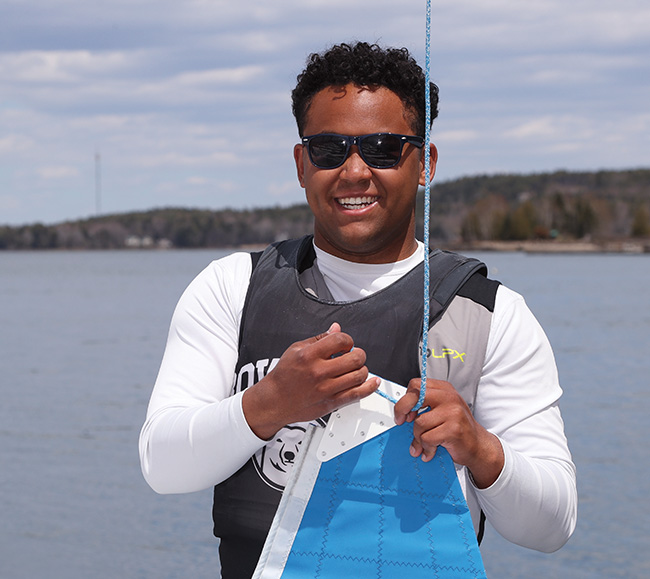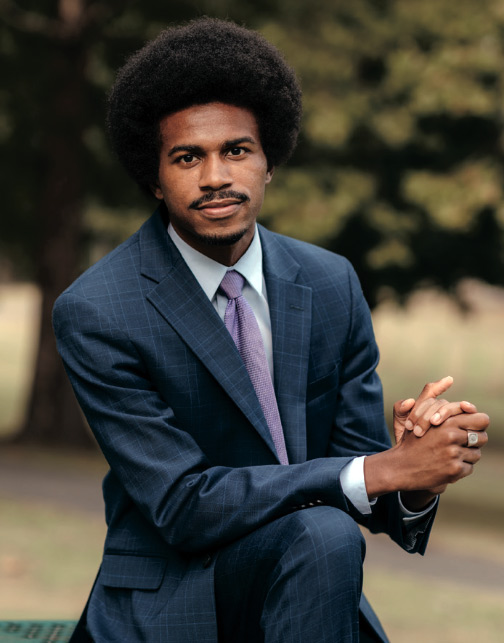What Lasts
By Samantha Francis-Taylor ’09 for Bowdoin MagazineGrieving the death of her former student and fellow Polar Bear Finn Woodruff ’21, Samantha Francis-Taylor ’09 finds solace in music, memories, and the calling that is teaching.
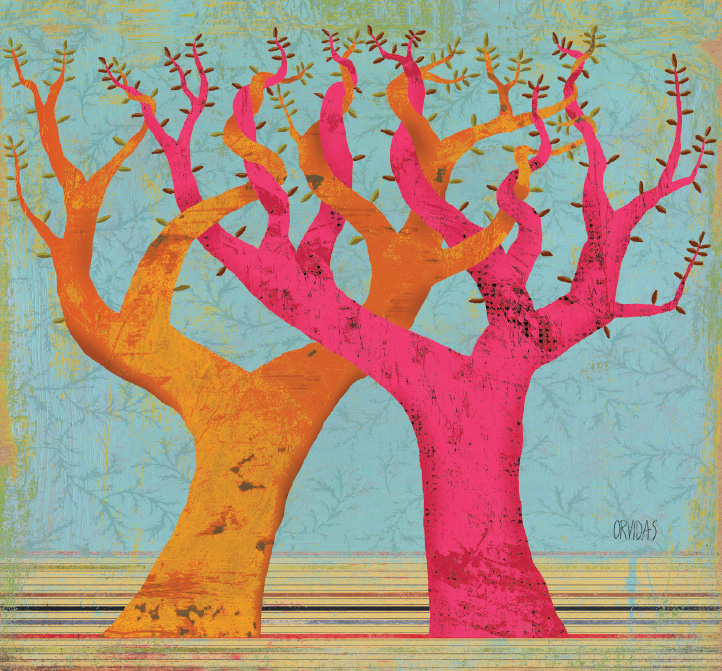
I applied to Bowdoin because my dad was obsessed with Joshua Chamberlain. I’m not kidding. It was the only school I got into—the SATs and I were not friends—and as a result, I ended up in Brunswick with buckets of enthusiasm and a firm belief that Bowdoin and I were meant to be.
When my acceptance letter arrived in the mail (yes, I am that old), the first person I told besides my mom was my English teacher. I drove the three minutes back to school, ran straight for Mr. Templeton’s portable classroom, and, half-screaming, half-crying, I yelled: “I GOT IN!!!” I’m not sure how common it is for a student to graduate with a degree in what they arrive on campus intending to pursue, but I did just that. I majored in English and minored in teaching, and after grad school I came back to Maine to start my career at Brunswick High School. I mean, of all the places, right?
The English teachers I had during my last two years of high school changed my life—they opened up every corner of my mind, took my breath away with their empathy and kindness, inspired me with their depth of knowledge and wisdom, transformed me from the inside out. Gordon Strout, may he rest in peace, passed away suddenly in 2018. I never got to say goodbye. My other mentor, Ken Templeton ’01, exuded enviable patience, creativity, and joy—he was brilliant but down to earth, and he listened like you were the only one in the room. It wasn’t just our discussions about Dostoyevsky and Nina Simone that left me buzzing, but how he carried himself through the world, how he contributed to his community, that inspired me. Teaching is a calling, one I knew I had to answer. Almost twenty years later, I’m proud to say that Ken and I are still friends. And we’re both still in the classroom, doing the work.
I first met Finn Woodruff when he was a sophomore in high school. He was the eldest of four children and the first to become a Brunswick Dragon. He was small in stature but mighty in intellect. He seemed skeptical of his teachers, and I loved that he wasn’t afraid to tell me so. We hit it off right away. We bonded over being born and raised in Maine; we bonded over Bowdoin—Finny’s dad ran the Outing Club, so we shared the same home away from home; we bonded over music: the learning, writing, and playing of it. We argued about Shakespeare and whether Charlotte or Emily was the better Brontë (the answer is Emily).
I was his teacher and he was my student, but—and you’ll know this if you spend your own precious days in a classroom—the best ones impart more lessons than you could have ever hoped to teach yourself. There is an invisible string that binds some teachers and students together forever, and I could tell that Finny and I were connected for good.
When he ran into my classroom to tell me that he was going to Bowdoin, was officially becoming part of the Polar Bear family, I hugged him and told him he already was. A delightful feeling of déjà vu washed over me, only this time I was the one imploring “there is only one rule, and it’s called you HAVE to take a class with Professor Reizbaum!”
High school teachers don’t often get to witness the fruits of their labor. Students move on, as they should—they leave town and begin the business of living. With Finny still close by, I would be able to continue cheering him on from the trail or the auditorium. After he graduated salutatorian of the Class of 2017, we joked that we’d do it all over again in four more years, only this time we could have a beer after. I can still picture Finn’s smile from that gorgeous Friday night in June—the kid had a Gatsby smile—his whole body glowing under the glare of the Watson Arena lights.
I could have lived a thousand lifetimes and never once foreseen his tragic death.
I learned that Finn had passed away in an email no teacher ever wants to receive. The subject line read: “Death of a Former Student.” I had just started teaching my first block of the day, and for some stupid reason I clicked on the email. I was juggling windows and screens, trying to project a passage up onto the whiteboard. I thought I’d see the name of a student I didn’t know well, someone I had passed in the hallways or had watched play basketball in the gym once. I would feel sad, of course, but I wouldn’t adopt a cloak of false grief. Instead, my eyes saw letters that formed the name “Finnegan Woodruff,” and in that split-second, my heart shattered into a million pieces. I scanned the email quickly, then read the whole thing properly, reread it again, trying to undo the unfathomably sad reality that awaited with every line. I stood up and told my students to keep going with their close reading, told them I’d be right back, told them (like I always do when I have to step out briefly) not to light my room on fire.
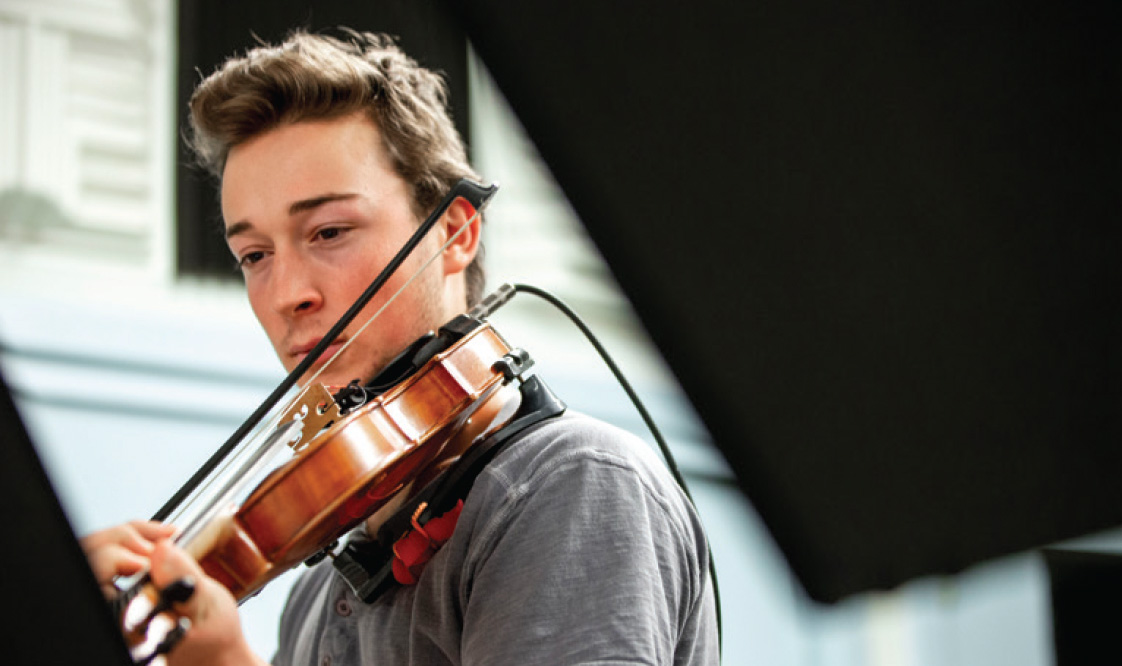
Teaching during COVID was brutal—you’ve heard the horror stories, perhaps endured them yourself. But the saddest day from that traumatic epoch in time, for me, was the day I found out that Finn had drowned in a kayaking accident on the White Salmon River. Never have I wanted so badly to turn back the clock, to undo the past. I wanted to wake up and start the day over, text him and say, Hey, kid, maybe just stay home today.
But I kept moving forward, which is, of course, the only way to keep going. It’s absurd what human beings can withstand when they have to. Somehow, I returned to my classroom, grateful for the N-95 disguising those first blasts of sorrow, made it through the rest of the block, then signed out during bathroom duty. I sobbed in my car, drove home so I could hug my husband. I remember I took my dog Pippin for a walk. And then I went back to school. And I kept teaching. And as long as there are students out there like Finny, I will keep teaching.
We are emerging from a period marked by so much loss, so much isolation, so much time apart from the people and communities we love. But this grief? For me, this is a Holden Caulfield aching for his brother Allie, a Hamlet longing for his father kind of grief; it punches me in the stomach, it makes it difficult to breathe. I hate that I have to let my memories of Finn settle into the past tense. It isn’t right. It isn’t where Finny belongs.
Finn was a remarkable talent, brimming with gifts and idiosyncrasies. He was the best fiddle player I’ve ever heard, the most affectionate brother I’ve ever seen, the most self-assured teenager I’ve ever met. Finn knew exactly who he was and what mattered most to him, even when he was fifteen years old. It’s not that he was closed off to other ideas, merely that he possessed innate self-confidence in his ability to carve out a life worth living. He moved humbly through the halls with grace, but he did not suffer fools. He was a quiet leader. He was wise beyond his years. The world did not deserve him, but my God did the world need him.
I know he was happy with Siena, happy out West, happy pursuing the things he loved best in this world. But that’s more reason to feel he was stolen from us. While Finn lived more fully than some people who make it to 100, it isn’t enough. I wanted to drink that beer with him, I wanted to play music around a blazing campfire, I wanted to dance at his wedding.
Most of all, I wanted to see what Finn was going to do to change the world, because every part of me knew that he was born to lead. He inspired every person who was fortunate enough to move in his orbit; he made things beautiful. Finny was like a shooting star that flashes across the dark, that stirs our sense of awe as it illuminates everything in its path, and is gone all too soon.
When Finn graduated from Brunswick High School, he wrote and played an original song in lieu of giving a speech. I usually leave my phone untouched during these events, but on this occasion, I broke my rule. I am grateful I did—hearing Finn’s fiddle sometimes tricks me into believing he’s still right here. I tell my students all the time that art is the only thing that lasts—art and love—and I don’t think I’m wrong.
When school came to a close last summer, I made the heartbreaking but necessary odyssey to Oregon. I crossed into Washington State, I picked poppies along the highway, I left them at the White Salmon River. I put my feet in the cool water, I read my Mary Oliver poem, and I tried to say goodbye to Finn as best I could. Two of my dearest Bowdoin friends were there to hug me when it was over. I write this now, bursting with gratitude for all the ways this community has shaped me. I know my life would have looked entirely different without my Polar Bear family, and it’s not lost on me that it has been the home to many heroes throughout time: from a man who saved the Union, to one who saved me when he put the right book in my hands at the right time, to a young man I would have done anything in my power to save if I could.
While I mourn the milestones we’ll never mark, I can still find Finn: I feel him in the dappled light of late summer, in a lone tree standing at Crystal Spring Farm, in the smooth tracks I make with my skis, gliding through freshly fallen snow. I feel him every time I hear a violin or sing “All of Me” to my daughter at bedtime. Most of all, I find Finn in the faces that sit before me, that remind me to keep trying, to keep showing up, to keep giving them every single thing I’ve got. Very soon, one of those faces will belong to Finn’s sister. She’ll be my student; I’ll be her teacher. We’ll read the books. She’ll mend and break my heart—I’ll do everything in my power to take care of hers.
So here’s my vow: to try like hell to live like Finn. Ken once told me that teaching was about trying to convey how to love something. I’ve never had a hard time doing that—telling people that I love them. It’s the letting go I have always struggled with. At Finn’s memorial, my classmate Willy Oppenheim ’09 stood up in the December light and read Mary Oliver’s “In Blackwater Woods.” I leave the final words here now for you: “To live in this world,” she instructs, “you must be able to do three things: to love what is mortal; to hold it against your bones knowing your own life depends on it; and when the time comes to let it go, to let it go.”
I’m still not ready to let Finn go. I’m not sure I ever will be. But I can promise to hold Finn in the table of my memory, to reflect upon every lesson he ever taught me, every lesson he continues to teach me. And I can keep sharing my Finn stories and encourage you to share yours as well.
Once upon a time, I taught a boy named Finnegan Woodruff. He was a marvel, and I miss him.
Samantha Francis-Taylor ’09 lives in Brunswick, Maine, with her husband, Maximillian Taylor ’10, and their son and daughter. She teaches English at Brunswick High School.
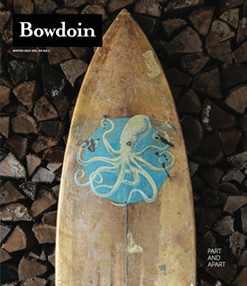
This story first appeared in the Winter 2024 issue of Bowdoin Magazine. Manage your subscription and see other stories from the magazine on the Bowdoin Magazine website.

